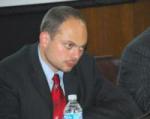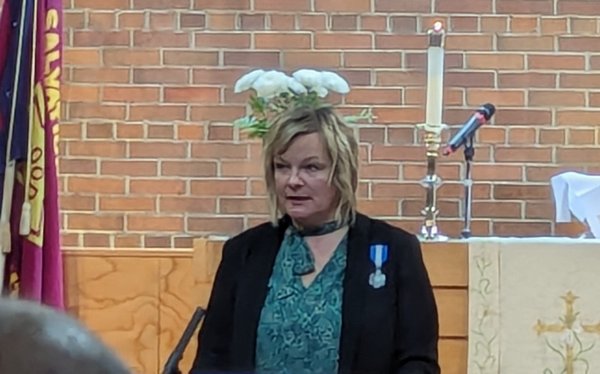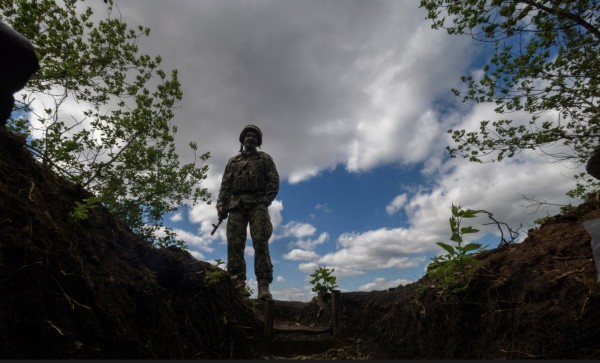
On Sunday, opposition supporters in St. Petersburg held a downtown rally to demand a free and fair vote in the municipal and gubernatorial elections scheduled for September. The last such polls, in 2014, were a prearranged farce. The authorities barred opposition candidates from the ballot and arranged mass fraud through early voting to prevent any surprises. Participants in the rally, which brought together diverse groups across the opposition spectrum, called for the abolition of the “municipal filter,” the requirement for gubernatorial nominees to collect signatures from local lawmakers in order to get on the ballot. The filter has been used to disqualify opposition candidates in regional elections across Russia.
The timing for the rally was deliberate: This week marks 30 years since the Soviet Union’s first (and last) nationwide competitive elections. On March 26, 1989, citizens of the Soviet Union went to the polls to choose members of the Congress of People’s Deputies, a new super-legislature created by Mikhail Gorbachev’s changes to the Soviet constitution as part of his policies of demokratizatsiya.
By normal standards, that election was anything but democratic. Of the 2,250 lawmakers, 750 were hand-picked by the Communist Party and its satellite “public organizations” such as the Young Communist League and the Soviet Women’s Committee. A further 399 seats were filled in Soviet-style single-candidate “elections.” Competition in the remaining 1,101 districts came with a caveat, a “filter” of its time. Before candidates could reach the voters, they had to receive approval from the so-called district electoral assemblies made up of “worker collectives,” which were largely loyal to party officials. Their formal mandate was to “discuss candidates for people’s deputies of the USSR.” Their real purpose: to sieve out anyone deemed dangerous to the system.
Among the many localities where this filter was put to use was Nizhegorodsky District No. 158 in the city of Gorky, a major industrial and nuclear center on the Volga River that was closed to foreigners and that had served as the place of exile for the Soviet Union’s most prominent dissident, Andrei Sakharov. Eight candidates entered the race, among them a 27-year-old physicist by the name of Boris Nemtsov, a well-known figure locally despite his youth. The previous year, he had initiated a grass-roots campaign against a planned nuclear plant in the city, enlisting Sakharov as an ally.
“He … told dangerous things to that assembly of Communists,” recalls Viktor Lysov, a democratic activist who attended the meeting. “He spoke about private property, about a multiparty system.” Reporting on the meeting, the local Communist newspaper called Nemtsov “a troublemaker”; the district assembly duly blocked him from the ballot. (A year later, in the election for the parliament of the Russian Republic held without any “filters,” Nemtsov defeated his Communist opponents with 57 percent of the vote.)
In Moscow, the center of a growing pro-democracy movement, party apparatchiks choreographed the district assembly to allow only two candidates, the cosmonaut Georgy Grechko and the director of a local automotive plant, Yevgeny Brakov, to participate in the election. Grechko disrupted the scenario by withdrawing at the last minute. Delegates, freed from their instructions, voted to let Boris Yeltsin, the country’s leading political rebel, on the ballot. In the election on March 26, Yeltsin defeated Brakov by 89 percent to 7 percent.
In a stunning humiliation for the Communist Party, 38 of its regional first secretaries lost in their districts. And, although the Communists still held 87 percent of the seats, forming what opposition legislator Yuri Afanasyev termed “an aggressively obedient majority,” the most important outcome of the election was the formation of the Soviet Union’s first-ever parliamentary opposition. Despite the system’s best efforts, dozens of pro-democracy leaders — including Sakharov, Yeltsin, Afanasyev, Galina Starovoitova, Yuri Ryzhov, Arkady Murashev, Anatoly Sobchak, Gavriil Popov and others — were elected to the Congress and quickly captured the country’s attention with their daring, articulate and logically impeccable anti-regime speeches broadcast nationwide as part of the live coverage of legislative sessions.
Although their political grouping, known as the Inter-Regional Group of Deputies, never made up more than 12 percent of the Congress, their moral and intellectual authority proved too strong for the system to overcome. As Sakharov wrote years earlier about the struggle of Soviet dissidents, “it is not a question of arithmetic but of an intangible factor: breaching the psychological barrier of silence.” Overtaken by breathtaking changes in public attitudes, it was that same Congress, with its “aggressively obedient majority,” that would vote to abolish the one-party state; denounce the secret protocol to the Molotov-Ribbentrop Pact; and issue “moral and political condemnation” of the Soviet invasion of Afghanistan.
The Soviet election of 1989 gave an important lesson. However entrenched the system, however rigid the filters, strong public sentiment will still find a way. Voices that seem repressed and isolated can prevail if they have that most intangible of assets on their side, the truth. In the end, as Sakharov has said, “it is not a question of arithmetic.”



























